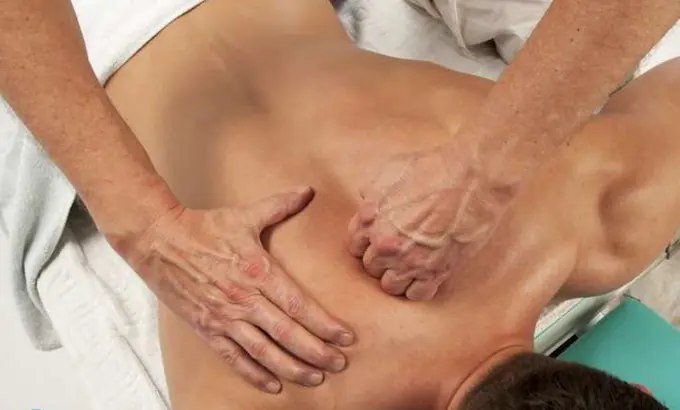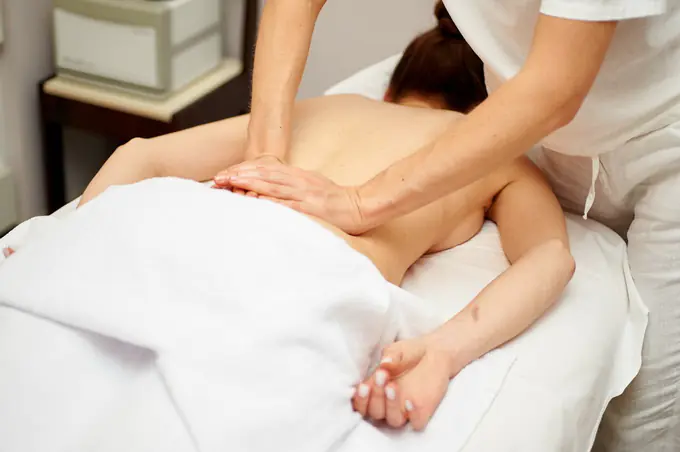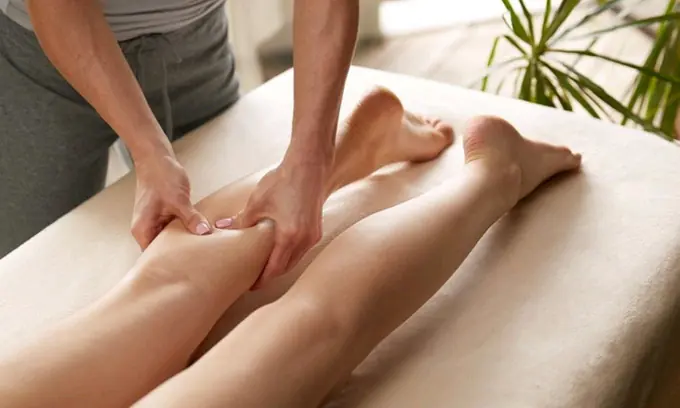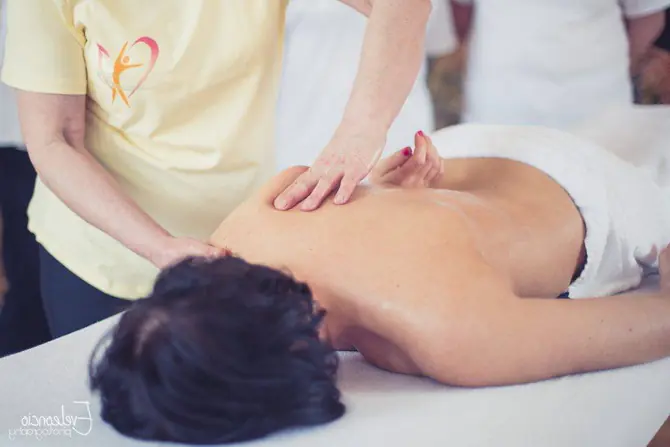At first glance, it seems that such an unusual thing can happen to the body after a massage? You strip down to your desired level of comfort, sit back on the table, and let a stranger relieve you of your stress for an hour. Despite its initial appeal, massage is widely accepted as an incredibly effective way to relieve stress, and the physical and mental benefits it brings are worth any momentary discomfort. But what actually happens during a massage and what transformations occur in your body afterwards?
While massages are fairly common—about 25% of men and 21% of women in the U.S. received a massage in 2021, according to the American Massage Therapy Association—many people are unaware of the real mechanisms behind how massage makes your body feel better. Moreover, much of what people think about massage is wrong.

Beret Loncar, a licensed massage therapist and owner of Body Mechanics Orthopedic Massage in New York City, states, “Many common beliefs about massage are incorrect. This is because much of what we are taught and advertised on reputable websites is inaccurate. Misinformation is widespread."
Now it's time to dispel some common myths about massage. For example, Loncar explains, “Massage does not break up scar tissue or improve circulation. Scar tissue has a tensile strength that is virtually impossible to change, and although massage can influence local circulation, true improvement in circulation can only be achieved by increasing the heart rate - however, massage has the opposite effect, decreasing the heart rate." So what do massages actually achieve?
As it turns out, the effects on your body go beyond the immediate sensations; some effects persist long after the massage session is completed. Let's look at some intriguing ways your body and mind respond to a professional massage.
1. Reduce stress levels
Massage is primarily intended to induce relaxation, but you may be surprised to learn that it can significantly reduce the amount of stress stored in your body. A 2020 study published in the journal Scientific Reports confirmed that even just 10 minutes of massage can be both psychologically and physiologically rejuvenating because it activates the parasympathetic nervous system.
How to make your own massage oil? We have the best recipes.
Read about kneading - the main technique in massage - in this article.
While massage was once thought to primarily reduce stress by lowering levels of cortisol, the body's primary stress hormone, the reality is more complex.
Loncar states, “The direct effect on cortisol levels is fairly minimal, and there is not enough research to fully support this claim. However, the fact that the benefits are independent of cortisol does not negate them; it simply means that the proposed mechanism is not entirely accurate. Further research is needed to determine exactly why massage helps manage stress and anxiety, and to clarify the immediate chemistry involved. The human body is interconnected in complex ways."
Although the exact mechanisms remain unclear, massage undoubtedly helps reduce stress and anxiety, especially over time.
2. Reduced heart rate and blood pressure
In this regard, massage has been proven to reduce both blood pressure and heart rate, promoting faster recovery of the cardiovascular system. Lonkar explains: “A typical Swedish massage typically lowers your blood pressure and heart rate, putting you in a 'rest and digest' state, which helps regulate your autonomic nervous system - a key factor in stress management. This condition also promotes tissue repair.”

Moreover, a study conducted by Harvard researchers in 2021 and published in the journal Science Translational Medicine established a clear link between massage and increased muscle recovery, highlighting the connection between mechanical stimulation (massage) and immune function.
3. Pain relief
While the main purpose of massage is to induce relaxation, it has been shown to play a more important role in pain relief. Loncar notes, “Massage can be effective in relieving pain, provided it is done correctly, avoiding excessive pressure, which can cause discomfort. A 2016 meta-analysis published in the journal Pain Medicine strongly recommends massage as a pain management method."
Relieving pain and tension is an important reason for the growing popularity of postpartum massage. Susan Scarpinito, postpartum massage therapist at Purusha Wellness, explains, “New parents are looking to relieve muscle tension as postpartum massage can ease the stress of caring for a newborn on strained, weak and imbalanced joints and muscles, especially in the neck and chest areas. belts
It may also promote emotional adjustment.” However, it is important to note that massage should complement, and not replace, any current pain management treatment. As Loncar advises, "Always consult your doctor about this option and never stop taking your medication without your doctor's advice."
4. Potential discomfort after massage
Individual reactions to massage can vary greatly. While massage generally has a positive effect, some people may experience different sensations based on various factors. It is not unusual to experience dizziness, headaches, fatigue or soreness after a deep massage session.

Loncar explains: “Simple explanations include cases where the massage was excessively deep, causing the body to tense up and overexert itself. Very deep massage could potentially cause tissue damage, requiring waste removal and repair.”
Additionally, changes in the baroreceptors, which are responsible for measuring blood pressure, may contribute to these less-than-pleasant sensations after a massage. "During the 'rest and digest' phase, blood is redirected from the extremities to the internal organs for digestion, but the sensory stimulation from the massage is likely to momentarily draw the blood closer to the surface of the skin," Loncar explains.
“This may manifest itself as redness of the skin during massage. These complex processes can cause different sensations because your body is in active mode!” If you experience unusual sensations or discomfort after a massage, it is important to report these sensations to your massage therapist. As Loncar points out, the adage “no pain, no gain” does not apply to massage, and therapists strive to avoid causing discomfort whenever possible.
5. Increased sensory sensitivity
Massage is inherently touch-based, promoting improved sensory awareness as you focus on how each touch affects your body. Loncar notes, “Many people with various forms of trauma actively choose massage as a safe way to experience touch. Moreover, there is likely a multifaceted process of sensory awareness akin to the sensory meditation that occurs during massage. Concentrating on bodily sensations can have significant benefits for the mind.”
6. Emotional regulation
Although massage is primarily a physical exercise, it has long-lasting emotional and psychological effects. Loncar explains: “Given that stress, anxiety and pain directly affect mood, managing these aspects can improve mood. Your brain and body work together whether you like it or not, so treating your body well can lift your spirits. The limbic system and amygdala, which are responsible for regulating emotions, are the parts of the brain that are affected by massage.”
7. Early detection of health conditions
When you receive a massage from a licensed therapist, you are essentially consulting with a medical professional trained in pathology—the study of the causes and effects of disease and injury. Loncar notes, “They can help identify diseases before you know about them and refer you to the appropriate health care professional. Although we cannot make a diagnosis, we can certainly advise seeking additional medical help. Throughout my career, I have identified and referred clients with early stage skin cancer, deep vein thrombosis, anxiety disorders, heart disease and pelvic floor problems.”

Thus, massage has been proven to have positive effects on the body in many ways, especially when performed by licensed professionals. Loncar advises, “While everyone enjoys a good massage, it is extremely important to choose a licensed massage therapist over an unlicensed one. Well-trained therapists will consult with you before your session to understand the intricacies. Remember that each person has a unique health history, sensory sensitivity, brain chemistry, hormonal balance, blood pressure and underlying medical conditions that result in different responses to massage.”
As you relax on a massage table, you may not fully understand the science behind relieving the stress and pain you're experiencing, but learning about it is truly fascinating. Plus, it's just an incredible feeling!



